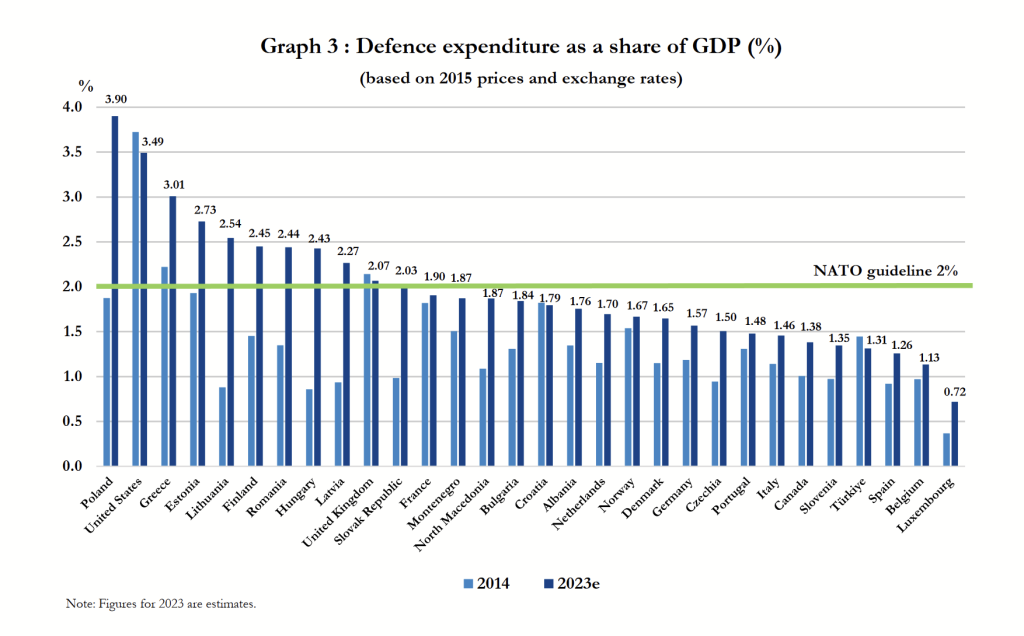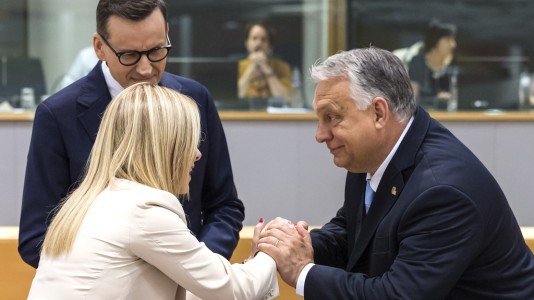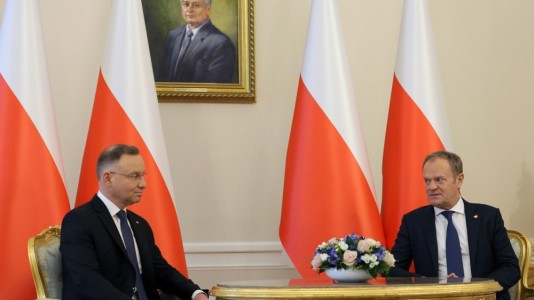NATO leaders expressed their outrage at Donald Trump after the former U.S. president told European nations they have “gotta pay” if they expect the United States to continue defending their interests.
At a campaign rally in South Carolina over the weekend, the leading Republican presidential candidate warned NATO member states that continued U.S. protection was contingent on them spending their fair share on defense.
“One of the presidents of a big country stood up and said, ‘Well, sir, if we don’t pay and we’re attacked by Russia, will you protect us?’” Trump told the audience.
“I said, ‘You didn’t pay. You’re delinquent.’ He said, ‘Yes, let’s say that happened.’ No, I would not protect you. In fact, I would encourage them to do whatever the hell they want.”
“You gotta pay! You gotta pay your bills,” Trump added.
NATO Secretary General Jens Stoltenberg released a statement confirming that the defense alliance remained “ready and able to defend all allies.”
“Any suggestion that allies will not defend each other undermines all of our security, including that of the U.S., and puts American and European soldiers at increased risk. I expect that regardless of who wins the presidential election, the U.S. will remain a strong and committed NATO ally,” he added.
Several Eurocrats in Brussels criticized Trump’s remarks before proceeding to call for what the former U.S. president was urging — namely, greater investment in defense.
President of the European Council Charles Michel said that the “reckless statement” does not “bring more security or peace to the world. On the contrary, it re-emphasizes the need for the EU to urgently further develop its strategic autonomy and invest in its defense. And to keep our alliance strong.”
Liberal MEP and former Belgian prime minister, Guy Verhofstadt, posted the misleading claim on social media that the “next U.S. president says he would ‘encourage’ Putin to attack Europe,” without providing any further context.
The arch-Eurofederalist saw an opportunity to push once again for his desired goal of a centralized EU military. “What the hell more do EU leaders need to finally set up a European army?” he asked.
EU Internal Market Commissioner Thierry Breton also supported the notion of increased EU military spending, telling French broadcaster LCI, “We cannot flip a coin about our security every four years depending on this or that election, namely the U.S. presidential election.”
NATO defense ministers agreed back in 2006 that all member states would commit to spending a minimum of 2 percent of GDP on defense — a move the alliance described as an “important indicator of the political resolve of individual Allies.”
However, as of 2014, just three member states were meeting that commitment — the United States, the United Kingdom, and Greece — prompting Trump to call out NATO allies who weren’t pulling their weight during his first presidential campaign.
The situation has marginally improved since, with NATO’s figures from last year showing that 11 of the then-30 member states (Finland has since joined the alliance) met the 2 percent target — the majority of those nations being on the alliance’s eastern front with Russia, including the Baltics and Poland.

Three of the Visegrád nations, with the exception of Czechia, met the target.
However, Europe’s largest economies including France at 1.9 percent, Germany at 1.57 percent, and Italy at 1.46 percent, continued to lag behind.
Despite the criticism from across the Atlantic, Trump’s campaign team doubled down on the comments and reiterated that Europe needs to pay up to protect its own security.
“President Trump got our allies to increase their NATO spending by demanding they pay up, but Joe Biden went back to letting them take advantage of the American taxpayer,” said Trump senior adviser Jason Miller.
“When you don’t pay your defense spending you can’t be surprised that you get more war,” he added.






